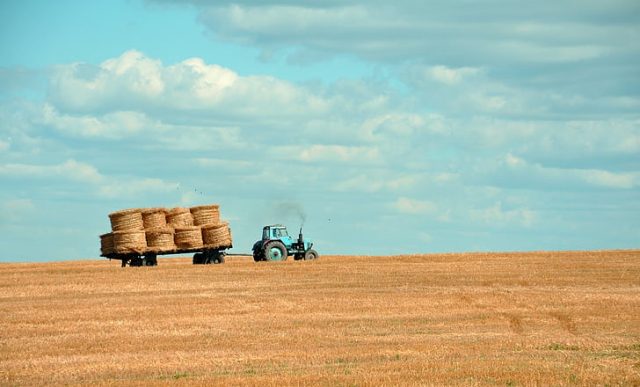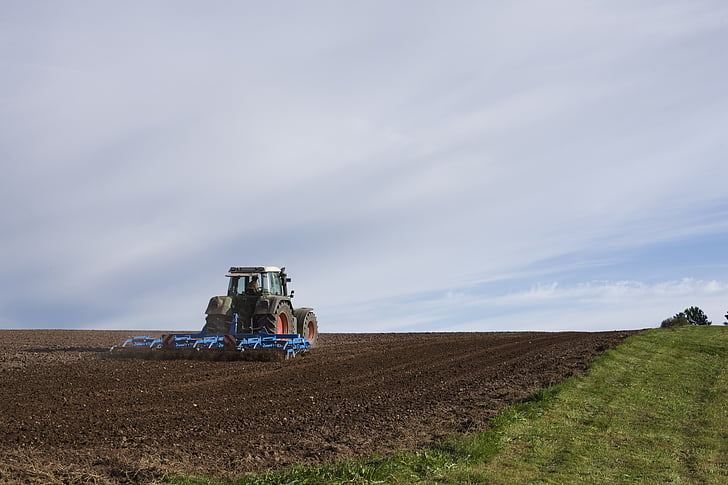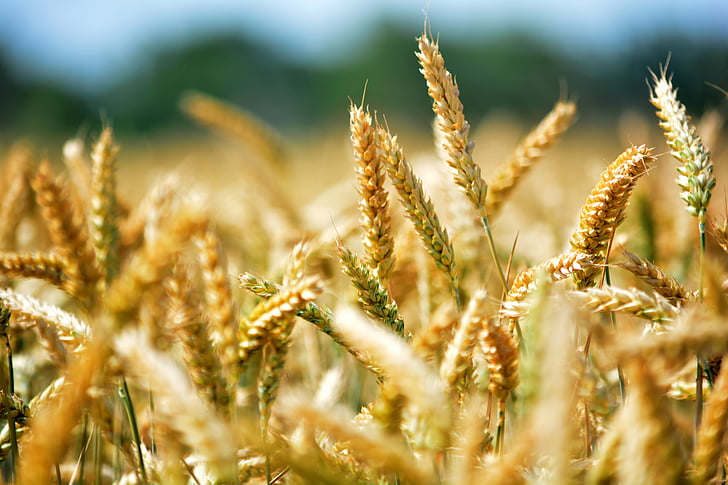
Thousands of farmers have taken to the streets in Romania, Poland and Bulgaria to protest against the dumping of Ukrainian agricultural products and the dumping of milk and dairy products by chain stores. There are also complaints in Hungary and Slovakia, where, like their colleagues in Romania, Poland and Bulgaria, people have not yet blocked towns and border crossings with their tractors. Farmers are also unhappy with the European Commission’s decisions on the amount of compensation offered and are demanding the reintroduction of customs duties on Ukrainian products.
Large quantities of Ukrainian grain have entered the EU market, both because of the opening up of the market, accepted by the EU bloc to help Ukraine in its war with Russia, and because of logistical bottlenecks that have left shipments of Ukrainian grain, originally destined for third countries, on the markets of central and eastern European countries.

Ukraine, one of the world’s top grain exporters, saw its Black Sea ports blocked after the launch of the Russian invasion in February 2022 and had to find alternative grain export routes via Poland and Romania. But logistical bottlenecks have left large quantities of Ukrainian grain, which is cheaper than that produced in the EU, in central and eastern Europe, making it, as Romanian farmers’ representatives put it, “cruel unfair competition” for the local ones.
Since the second half of last year, Ukraine has exported 37.2 million tonnes of grain, of which 20.6 million tonnes via the Black Sea corridor.
“The total elimination of tariffs on all Ukrainian goods since the middle of last year has, in trade terms, exported the effects of the war to neighbouring countries through an unintended dumping effect, as it has stimulated Ukrainian farmers to sell below cost as the pace of commodity flows has been forced up,” the Alliance for Agriculture and Cooperation announced.
Five countries call for additional support measures and reintroduction of tariffs on Ukrainian products
Amid these protests, Prime Minister Nicolae Ciucă announced that he and his counterparts from Poland, Hungary, Bulgaria and Slovakia have signed a letter that has been submitted to European Commission President Ursula von der Leyen. In it, the five prime ministers express their concerns about the difficulties faced by farmers in Romania and the other countries mentioned.
The Chief Executive explained that “this is a letter proposing a set of measures to reduce the imbalances created in the market by the massive imports of cereals from Ukraine and, of course, measures to support farmers in our country”. He added that a series of meetings are currently being held at the level of the Ministry of Agriculture and the Government to find out concrete data to support farmers. The letter also calls for the reintroduction of tariffs on Ukrainian agricultural products if the influx of these products, which is pushing down prices on EU markets, cannot be stopped by other means.
After the EU suspended import duties, quotas and other trade defence measures on Ukrainian exports to the bloc as a measure to support Ukraine and its economy in the face of Russian aggression, the scale of the influx of Ukrainian products, including cereals, oilseeds, poultry and sugar, is “unprecedented”, the five premiers note in their letter.
Poland temporarily halts imports of Ukrainian grain; Romania criticises Brussels’ compensation formula
Amid farmers’ discontent, Poland has temporarily halted imports of Ukrainian grain to soften the impact on prices, but transit will still be allowed, Polish Agriculture Minister Robert Telus announced, as quoted by Reuters. He took office after his predecessor resigned following protests.
“We have agreed to limit and stop exports to Poland for the time being. Transit will be allowed, but will be carefully monitored in both countries so that grain from Ukraine does not remain in Poland,” Telus said.
In Romania, Agriculture Minister Petre Daea said he stood by farmers and spoke of “a difficult situation due to a European Commission decision”. He said, according to Euronews, that the Commission was to blame for the low level of compensation offered to Romania and that it was due to the calculation formula used to determine the compensation.
“We have always done the right thing for the country, we have always done the right thing for the farmers,” the Romanian agriculture minister said.
“I was able to establish a whole series of elements that led me to say very clearly – that the formula he chose hides the truth and distorts reality. This formula, which the European Commission had worked out before arriving in Brussels, is simply the work they did on the documents they had at their disposal, and remember: Romania provided all the data on time,” Daea said.
The money, considered little, should reach farmers within a month
According to the Brussels formula, almost €30 million goes to Poland, over €16 million to Bulgaria and €10 million to Romania. The formula has also been criticised by Romania’s president, Klaus Iohannis. On the sidelines of the last European Council, he presented the difficult situation Romanian farmers are in to the president of the European Commission and asked the commission to review the situation.
“The Ministry of Agriculture delivers data to the European Commission. The European Commission uses a calculation formula without negotiating with anyone and grants certain aid. It is possible that the data provided by the ministry has not been thought through. But I have not seen them and cannot comment on them. It is, on the other hand, very strange that the European Commission does not negotiate anything on these cases, but uses formulas. These things cannot be solved – in my opinion – by accounting. These are complicated issues, we must take into account, for example, or at least the European Commission should have taken into account the fact that we have made huge sacrifices to facilitate the export of grain from Ukraine to world markets. (…) It is regrettable that such ultra-bureaucratic approaches call into question the good faith of the Commission,” said the President before the European Council.
European Council to review amounts Romanian farmers will receive
President Ursula von der Leyen announced during the meeting that the EC will review and reconsider the figures for Romania. The Romanian authorities are currently still waiting for a response. Asked if he had received an answer to the letter and how much money Romanian farmers will receive in total, European Investment Minister Marcel Boloş said:
“I have not yet received a reply to this official letter. Now it depends on how the Commission services will analyse it and see in which direction we will act. (…) it now depends on what the Commission will have available, because everything depends on the budget that will be made available for this type of measures that Member States have to take in order to compensate farmers and agriculture, and we will see how things evolve”.
The Romanian minister added that “any amount is welcome”.
“It is important that such a package of measures is being worked on. (…) I think it is very important now to get this budget for Romania. Any amount is welcome. The reasons are also good and, from this point of view, I think we have to look at what will be the final result of the implementation of the measure and how much money we get after the steps we have taken,” Minister Boloş told Antena 3 CNN.
Farmers still have to wait at least a month to receive the money from the European Commission, Agriculture Minister Petre Daea said immediately after meeting protesters. But the money will only go to farmers who had grain in stock by the 1st of February, not to traders. An additional 870 million lei in support will come for crops hit by disasters. This is in addition to the €10 million the EU executive has already approved for farmers in our country. A final decision on the new aid should be taken by the end of April, and the five countries – Poland, Slovakia, Hungary, Bulgaria and Romania – will benefit from the support.
“These amounts were not negotiated, neither with us nor with the Romanian state. From our point of view, the calculations were made systematically according to certain criteria that do not favour the most affected countries”, stressed the Romanian Minister of Agriculture, Petre Daea.



 Subscribe
Subscribe